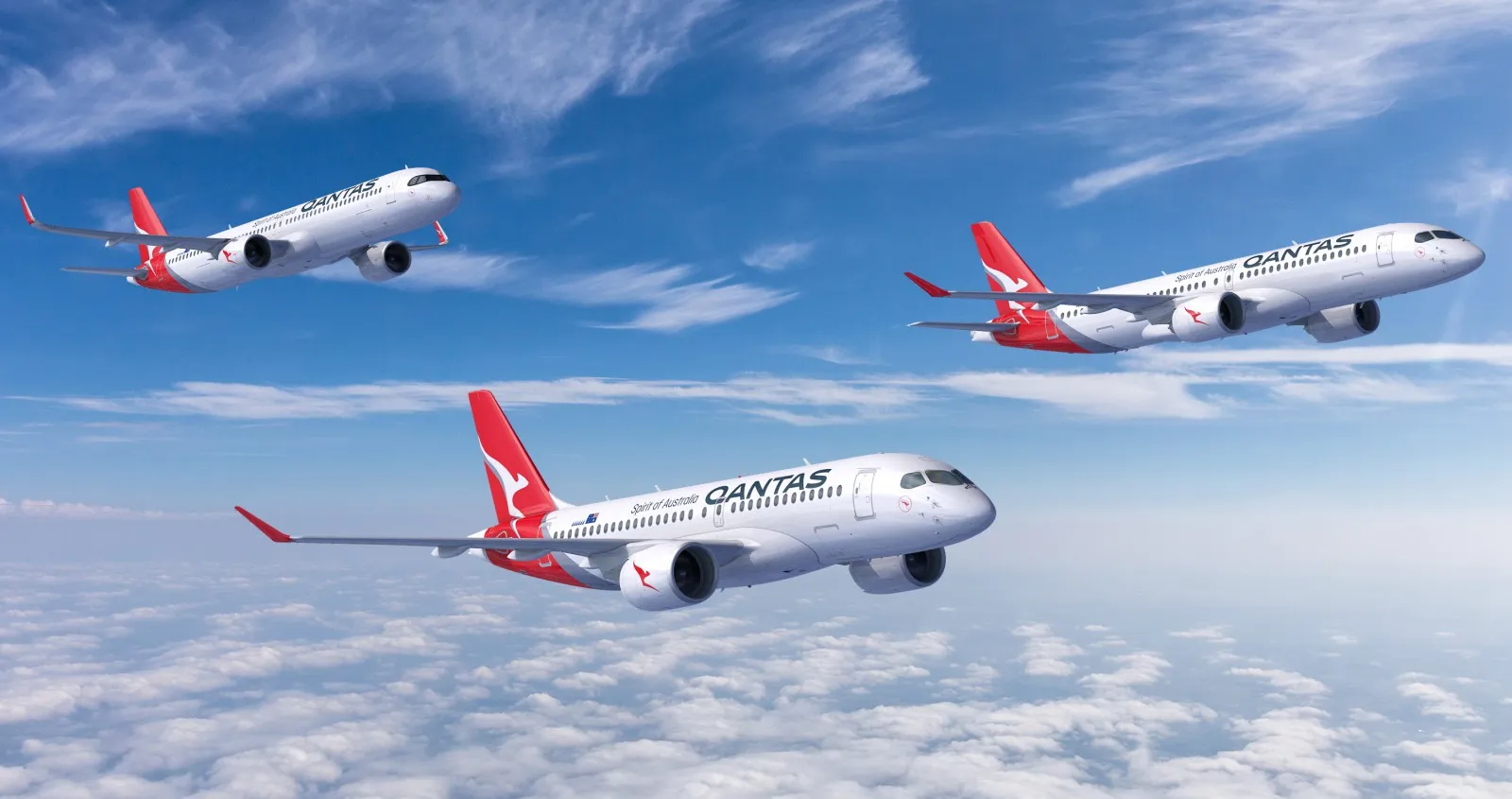
Qantas Forecasts Profit Upgrade On Booming Travel
Nov 22, 2022

Qantas Airways has announced a significant forecast profit upgrade, driven by a surge in travel demand as restrictions ease and consumer confidence returns. The airline reported increased passenger numbers and a strong recovery in both domestic and international travel sectors. This uptick has been attributed to a combination of pent-up demand, the easing of COVID-19-related travel restrictions, and a rebound in business travel. Qantas expects to benefit from higher ticket prices and improved operational efficiency, positioning itself for a robust financial performance in the upcoming fiscal year as the travel industry continues to recover.
As the travel industry continues to recover from the impact of the pandemic, Qantas Airways has recently announced a positive forecast for profit upgrades, driven by a significant surge in travel demand. This anticipated growth not only reflects the resilience of the airline but also indicates a broader rebound in the global tourism sector. With increased passenger numbers, Qantas is set to benefit from a robust recovery, making it a pivotal player in the aviation market.
Strong Travel Demand Boosting Qantas' Prospects
Qantas has reported an uptick in bookings across both domestic and international routes. The airline’s ability to adapt to changing travel patterns has positioned it favorably in the marketplace. According to recent statistics, the increase in travel is attributed to several factors, including pent-up demand, the easing of travel restrictions, and a growing desire for leisure travel.
Below is a table showcasing the projected passenger growth for Qantas over the next few quarters:
| Quarter | Projected Passenger Growth (%) |
|---|---|
| Q1 2024 | 15% |
| Q2 2024 | 20% |
| Q3 2024 | 25% |
| Q4 2024 | 30% |
As evident from the data, Qantas is on track to witness a substantial increase in passenger numbers, contributing positively to its profit margins.
Revenue Growth and Financial Performance
With the anticipated rise in travel, Qantas is set to experience a notable boost in revenue. The airline has implemented several strategies to enhance its operational efficiency and reduce costs, allowing it to maximize profits in this favorable climate. These measures include optimizing flight schedules, increasing fleet utilization, and leveraging technology to streamline operations.
In addition, Qantas has seen an increase in ancillary revenue, which includes income from baggage fees, seat selection, and onboard sales. This diversification of revenue streams has been crucial in bolstering the airline's financial stability.
Market Position and Competitive Advantage
Qantas’ strong brand recognition and loyalty programs have also played a significant role in its competitive advantage. The airline’s Frequent Flyer program has attracted a loyal customer base, encouraging repeat business. Furthermore, Qantas has been proactive in expanding its route network, tapping into emerging markets, which is expected to enhance its market position even further.
The following chart illustrates Qantas' market share in the Australian aviation sector compared to its competitors:
| Airline | Market Share (%) |
|---|---|
| Qantas | 60% |
| Virgin Australia | 30% |
| Other Airlines | 10% |
With a commanding market share, Qantas is well-positioned to capitalize on the growing travel demand while maintaining its lead over competitors.
Challenges Ahead
While the outlook for Qantas is positive, there are potential challenges on the horizon. Fluctuating fuel prices, supply chain disruptions, and the potential for new COVID-19 variants could impact travel demand and operational costs. Additionally, the airline industry is known for its sensitivity to economic downturns, which could affect consumer spending on travel.
To mitigate these risks, Qantas is focusing on enhancing its operational resilience and maintaining flexibility in its business model. This includes investing in sustainable aviation practices and exploring new revenue opportunities beyond traditional passenger services.
Conclusion: A Bright Future for Qantas
In conclusion, Qantas is forecasting a profit upgrade on the back of booming travel demand, reflecting a broader recovery in the aviation industry. With strong passenger growth, effective cost management, and a robust market position, the airline is poised for a successful future. As travel continues to rebound, Qantas is set to leverage its strengths and navigate any challenges that may arise, ensuring it remains a leader in the airline industry.
As we look ahead, Qantas' ability to adapt to changing market conditions will be crucial for sustaining its growth trajectory. Investors and stakeholders alike should keep a close eye on Qantas as it navigates the evolving landscape of air travel.
Related Articles

Explore Thailand: The Best Islands to Visit for Paradise, Adventure, and Relaxation

The Ultimate Guide to the Best Islands in Thailand for Your Next Getaway

Do babies need passports? How to get a passport for a newborn

How to get a U.S. passport fast: here’s how to expedite the process

What is Mobile Passport Control: 5 reasons why you should use it

SENTRI vs. Global Entry: A detailed guide

Do you need a passport to go to the Bahamas? Let’s find out

Do you need a passport to go to Mexico? A detailed guide

Do you need a passport to go to Canada? We got the answer

Do You Need a Passport for a Cruise: An Essential Travel Guide

Booster Seat Requirements: All the Rules to Follow in Your Rental Car

What Are the World’s Most Powerful Passports, and How Does Yours Rank?

How to Take a Passport Photo at Home: A Helpful Guide

You've got to have heart! Southwest's new livery

Your opinion: Should water be free on low cost carriers?

Young women bolder than guys as solo travellers
